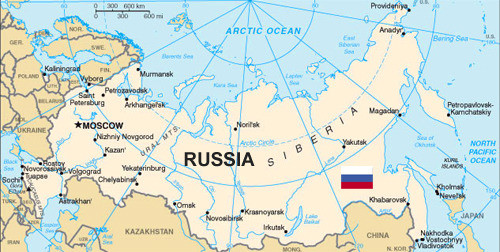Why are Russian truckers protesting? 10 questions and answers

For over a month now, long-haul drivers in Russia have been engaged in a mass protest, staging rallies across the country, which have now reached Moscow. Truckers, especially those who are self-employed or work for small businesses, believe that the recently introduced additional toll for using federal highways will put their business on the brink of bankruptcy.
(Russia Beyond the Headlines – rbth.ru – OLEG YEGÓROV, SPECIAL TO RBTH – December 7, 2015)
1. What’s the background?
Starting from Nov. 15, Russia has introduced a new toll collection system, called Platon, for collecting fees from trucks weighing over 12 tons for using federal highways. Even before Platon came into effect, long-haul drivers had started protesting against the new levy. They are still protesting.
2. What is Platon for?
According to statistics gathered by the Federal Road Agency (Rosavtodor), up to 58 percent of damage to roads in Russia is caused by heavy trucks (those weighing over 12 tons). The government has decided to compensate for this damage with a levy imposed on companies and sole proprietors using these trucks. The money collected through Platon is planned to be used for road repairs and various infrastructure projects.
3. What problems did the system experience?
In the first days after Platon was launched, there were numerous glitches in the system: It overcharged users and was frequently down. However, the problem was not only on the technical side: Many truckers were opposed to the very idea of an additional levy on their business.
4. Is the new toll really crippling for haulers?
The thing is that most haulers in Russia are small companies – often sole proprietors who own just one truck. There are no official statistics as to the share that sole proprietors and small businesses make up of all haulers in Russia, but truckers themselves (both those who are self-employed and those who work for big companies) are convinced that small businesses account for most of the road transportation sector in Russia, from 60 to 80 percent.
5. How did the protest start?
Truckers began to stage protests in regions across Russia even before Platon came online: Trucks moved along federal highways at minimal speed, causing massive traffic jams. The drivers objected to Platon and the new toll they were to be charged: 3.73 rubles ($0.06) per kilometer.
The authorities responded to the protest by lowering the toll for the first three and half months to 1.53 rubles ($0.02) per kilometer and by considerably reducing the penalty for non-payment. Initially, the penalty (for legal entities) was 450,000 rubles ($6,500) for the first non-payment and 1 million rubles for repeat non-payment. The penalty was reduced (for individuals and legal entities alike) to 5,000 rubles for the first offense, and 10,000 for repeat non-payment.
6. Where is the protest now?
Despite the concessions made by the authorities, the truckers have continued their protest. Activists from the regions have more than once announced their intention to come to Moscow and stage the main protest there by blocking traffic along the Moscow Ring Road. On Dec. 4, several groups of protesters appeared on roads leading to Moscow.
7. What are the authorities saying?
The authorities have not indicated that they are ready to cancel or suspend the Platon system. In an interview with the business daily RBK, the head of Rosavtodor, Roman Starovoit, insisted that an absolute majority of long-haul drivers did not object to the new levy and that the protest involved no more than 1 percent of all truckers in Russia. According to Starovoit, over two thirds of all 12-ton trucks have already registered with the system.
8. What do the truckers want?
The worst affected by the Platon system are small businesses and sole proprietors. If for large companies the introduction of a new levy is an unpleasant but far from a critical issue, for many small haulers it makes their business no longer viable. They are demanding that Platon either be scrapped altogether or at least suspended for several years.
9. What is the public attitude to the protest?
It would be an overstatement to say that the truckers’ protest has received considerable support beyond the relevant professional community, though this may be due to the limited coverage the issue has received on state TV (Russia’s Perviy Kanal, or Channel 1, has come under fire from internet users for ignoring the protest).
According to Denis Volkov, a sociologist with the Levada Center pollster, given the popularity that the incumbent authorities and their policies currently enjoy, the campaign against Platon is unlikely to develop into a mass protest. For their part, truckers say that ordinary people are supporting them and are even offering to put them up for the night and bring hot food to protesters.
10. What’s next?
Political analyst Alexei Makarkin, vice-president of the Moscow-based Center for Political Technologies, believes that the authorities will succeed in suppressing the protest by splitting the truckers up.
“The state has decided to play the card of dividing long-haul drivers into moderate and radical ones, with the majority belonging to the former camp, representing large companies,” Makarkin told RBTH. “At the same time, the authorities are making partial concessions by temporarily reducing the toll and slashing penalties, thus eroding the protest from within.”
Article also appeared at rbth.com/politics_and_society/2015/12/07/why-are-rusian-truckers-protesting-10-questions-and-answers_548293
